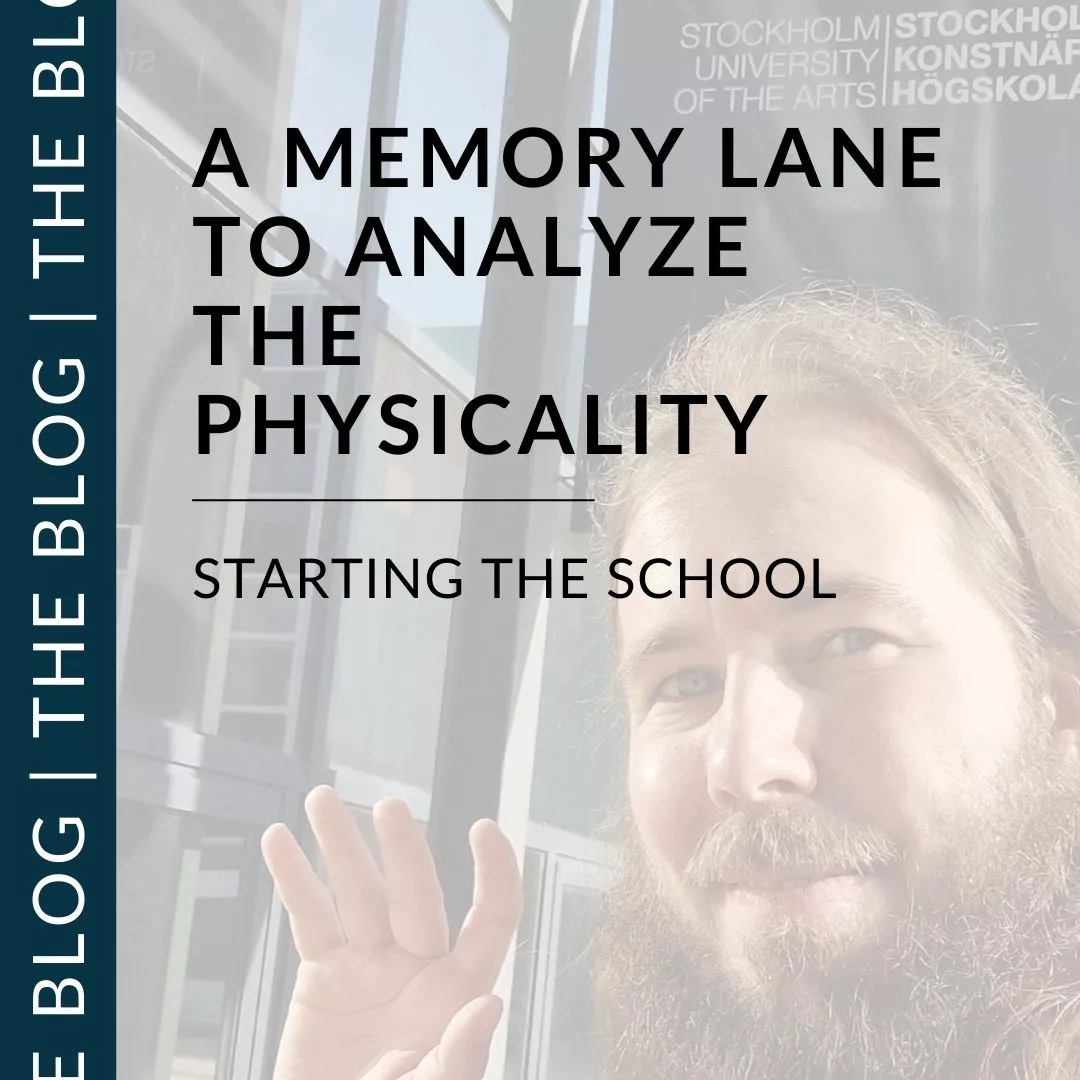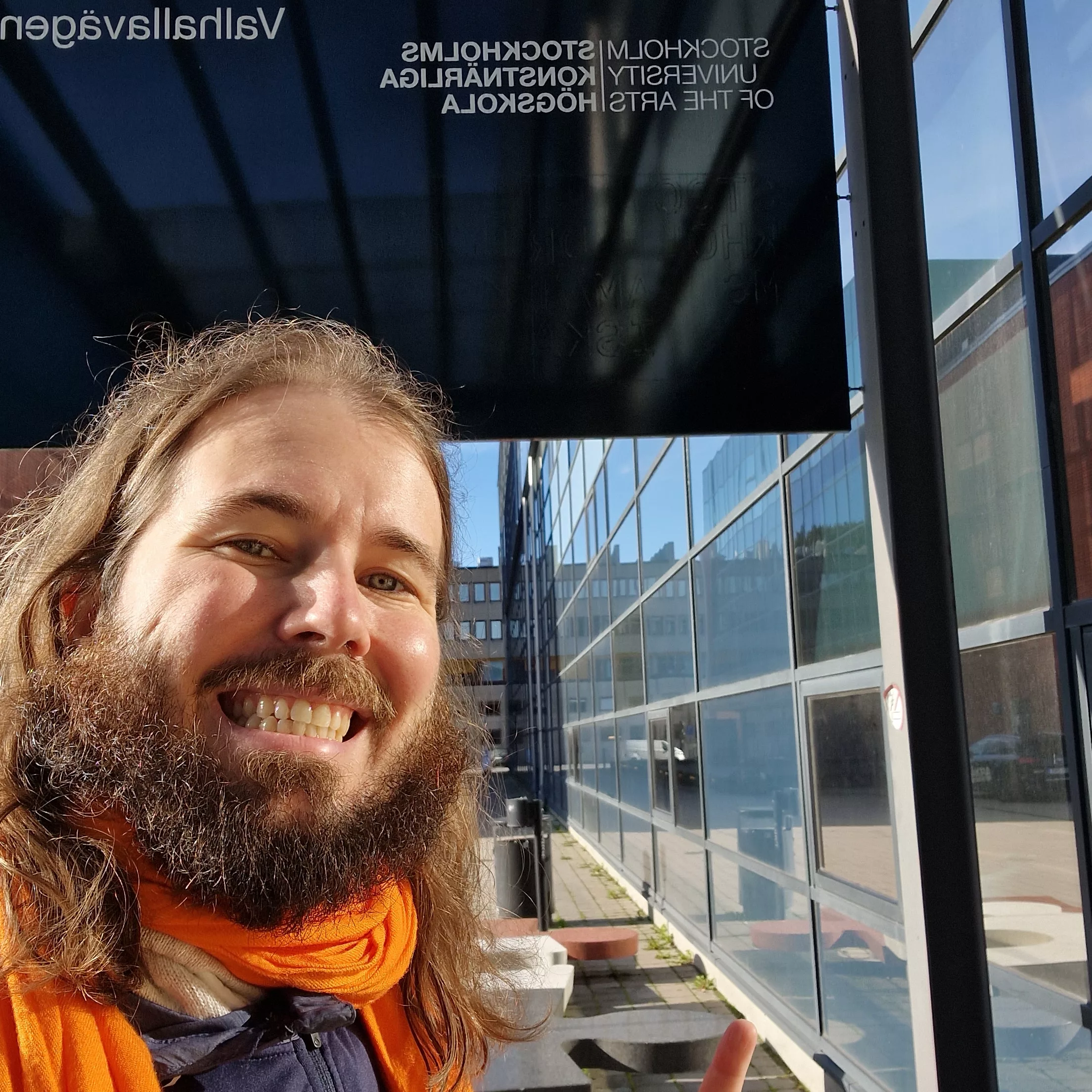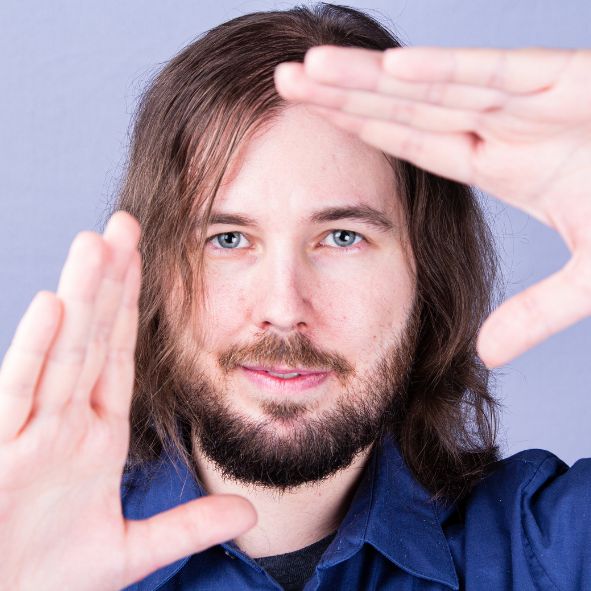
The First Week at School
I am starting the first new series in A Memory Lane to Analyze the Physicality. It is about the studies I’ll do at Stockholm University of the Arts. More details of the study project here.
Starting the School series will concentrate on sharing my beginning at Stockholm University of the Arts. I feel like that will be theme of at least the first few months, maybe the whole autumn. For a two-year program I wonder when it feels like I am actually not ”starting” anymore, but finally ”doing” and ”finishing”. Most likely there will be another series when I have got over the first impressions.
This post here is about my first school week. I tell what all happened, and my personal thoughts on it. In this post I concentrate on the Start of the Autumn Term program and to the introduction lessons that we got about the first actual course of the program.
Experiencing the First Week of School!
I came to Stockholm a week before the courses actually began. I did this to have time to land to the city (as you might know: I believe to reserving time to the processes), and to participate to the week-long Start of Autumn 2023 Program.
The intro week was fascinating in many ways. I felt like it was an easeful way to briefly connect with other performing arts students. I did also have time to ruminate all the information I got and to internalize it to some degree. I met the personnel which felt nice: learned some of their names, roles, research areas and short glimpses to their personality. Now I have also my keys, know how to access the library and found out some ways on how to organize food during the school days. The first week was a very successful week already with all the ’soft’ information I got!
Besides these personal by-products of the week, we had actual program during the week.
Intro Monday
Monday started with a welcoming speech by the vice-chancellor Paula Crabtree. Following them a circus artist and one of the doctoral candidates, Erik Åberg.
After the speeches we got to learn a bit of the different departments, student unions and research department in practice: a few tasters of the current works-in-progresses at different departments, I understood. The thing that I remember best was the principles behind the work of the research department’s doctoral candidate Hendrik Quast.They work with performers with and topics of chronic illnesses. This topic was something I am considering with my own MA research project about physicality. I could do well to remember to follow Hendrik’s work during the next few years, that is
Tuesday
Tuesday was a day when we had our first actual lesson: an online lecture. After the morning lesson, the afternoon program was two presentations about Equal Conditions. First presentation was by Frida Wettmark. Then we had a stage deeper elementary level discussion about racism lead by the university’s advisor Anna Adeniji. I do understand that with this large a group we have to keep the training at a very basic level, and I still felt like there is an intention for the university to grow. As anti-racism is one of the Core Values of IDC, I am glad that there might be opportunities to continue the work also at this university.
Wednesday
Wednesday was shorter day focusing on the practicalities and different partitions of the organization. Besides the departments of education, there are reporting structures and other practical stuff.
Thursday
The intro week’s Thursday was a long day. It combined another online lesson, and then… a four-hour set of lectures, presentations and finally a film.
The lecture was given by a social antrophologist, scholar of religion and public speaker Brian Palmer. It consisted of examples on how art might let us sit with huge topics. The tools of humour and beauty might even help sit with things like the looming nuclear disaster. After that would have been the lecture by Charlie Åström, but it was sadly cancelled.
After Brian’s lecture I had to take a personal half-an-hour meeting for an upcoming Union event I am organizing, so I missed part of the next program. When I came back to the lecture hall, I learned about the system created by researcher Lina Persson and producer Lena Kempe. The system was a wonderful new online tool to estimate a film production’s carbon footprint, Elsa.film. I did get an intuitive parallel with EU-wide OIRA, that helps to plan the risk assessments of the production. I feel like the impacts on well-being and environment are something that we should always consider as responsible people working on performing arts, and not merely the cold, hard budgets of money.
After the lecture, we watched a film, After Work, which was a many-sided presentation around the idea of work.
Friday
Friday was a day off, when I sat down to write the first draft of this post, and took my time to rest. I also got an idea that I should be actually write something about the practical arrangements. I am trying to be quite ethical here while balancing the life necessities, my accessibility needs and following a very strict student budget. I am also quite curious how these different aspects of sustainability will affect my work within my degree project.
The First Course during the First Week
The first course we have is called Bodily and Vocal Practices in the Performing Arts. We did go through the syllabi, course plans, and study guidelines for the course. We went through the electronic libraries full of literature, performance recordings and other wonderful material we can use to do our future research. I felt that the reference guides will help me to make even this blog clearer: currently these are my own thoughts, but in the future, I plan to tell more of what has been done, and then I feel like referring in a smart way might be a necessity.
We also got an interesting preparation task around mapping our practices that I will be telling more later.
Learning Outcomes
As a teacher, I was very interested in the quickly-mentioned learning outcomes of the course, and the pedagogy of the course and school in general. Here are the learning outcomes as they stand on our Study Guidelines:
1. demonstrate the ability to explain selected current practices and theories related to bodily and vocal practices within the field of performing arts;
2. using relevant tools, methods and terminology, demonstrate the ability to analyse and reflect on their own and other people’s work and practices related to bodily and vocal practices;
3. demonstrate the ability to contextualise and critically review their own work in relation to selected theories and artistic approaches related to bodily and vocal practices; and
4. demonstrate the ability to broadly articulate and demonstrate how their own artistic approach can be further developed.
As far as I read these, everything is about explaining, about ability to analyze and reflect, ability to contextualize and critically review and broadly articulate and demonstrate. That is, the course will not be about technical skills that we learn but about the skills to understand the different technical skills. This approach to working feels very useful at this point of my career, and I feel like there has been similar sidetracks in my previous studies.
Within Novia University of Applied Sciences, at physical theatre programme, we had to articulate a lot of the physical practices we use. Similarly, within the pedagogy degree at Novia, we worked with our existing pedagogical practices. Finally, the Intimacy Director training by Intimacy Directors and Coordinators did make me reflect on my own practices from a ethical, technical perspective. To become the best Intimacy Director I can be, I have to keep on growing and staying accountable.
I am waiting eagerly to see, how these are approached in practice.
Examination Process
Another thing that interests me currently is the examination process. We have to both submit a text and create a more performative presentation. I will let you know more of these later on. I have never seen anything like that before, which makes me curious of what I can provide. When I am not looking forward to learning new performer skills, how the presentation should be.
Practically, I am starting to get interested in the program, and starting to understand how much work it will mean. I am also honoured to be here and to learn more with this wondeful cohort and these wonderful teachers.
Finding the essential
As an artist and as a human being, I would want my research to serve a better world in some way. It is about being after a study of contextualized moments. Then I have to just decide what level of context I choose for this research. My intuition tells me that I still lack clear intent, the ultimate purpose for my research. I am not sure if I actually need one at this point, but I cannot just ignore the discussion.
I have made two preliminary decisions about my study: first I want to study collaborative artistic processes in which I am part of and then to let the processes present themselves. These two decisions make me slightly reluctant to decide a strict framework of physicality to study as I haven’t yet entered the spaces. One purpose of this blog seems to be to make sure that I have made flexible enough but also clear enough study plans to actually analyze the reality I am presented with.
I also feel that I would be most interested in serving specific intents that come from the every single working group. As an example of an goal to create a space of listening to each other. What are the concrete steps they take to shape that kind of environment: how do they practice that particular choice in that particular group?
I could in theory record every action that happens in the physical space. And have discussions with the working group about the kind of space they seek to create, and all the practical tools they plan to use for it. Then I could continue the discussion afterwards with each and every group member about how they experienced the particular choices. A good tactic would be to inquire what is it that in those choices made the person feel that way.

